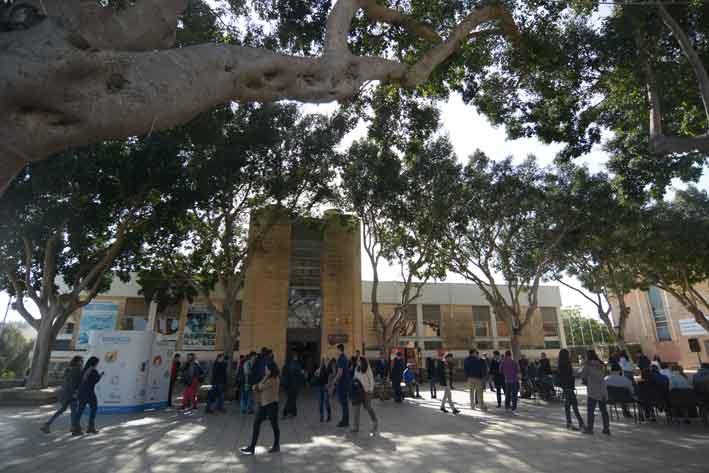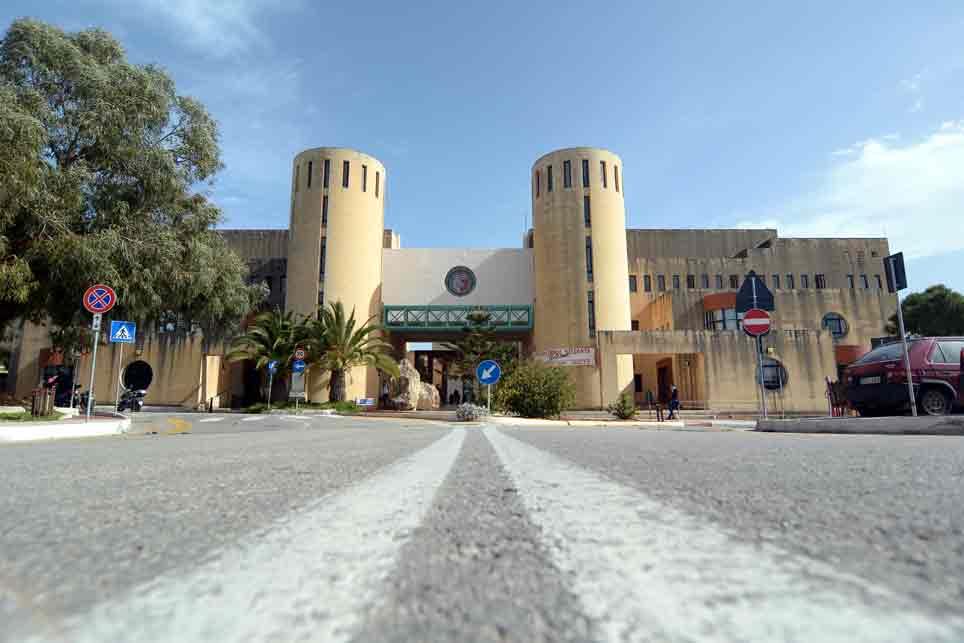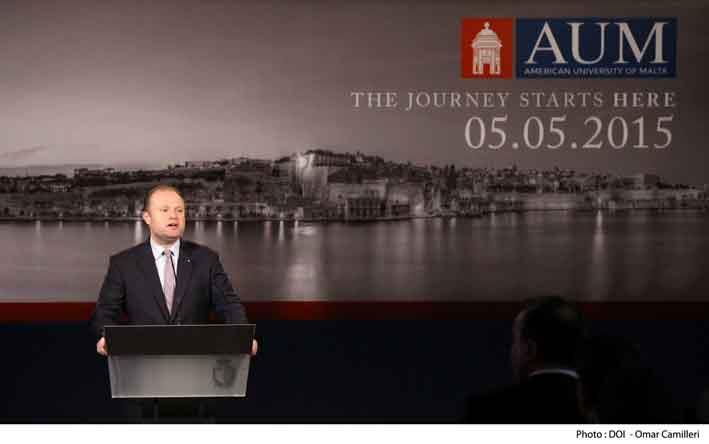Recent changes to the Education Act have resulted in lower requirements for educational institutions to be recognised as universities.
The changes in the country's education legislation were introduced in a Legal Notice published just three days after the Heads of Agreement was signed between the government and the Jordanian Sadeen Group, which is investing in the American University of Malta.
The Legal Notice (LN 150), published on Friday 8 May, saw substantial modifications being made to Subsidiary Legislation 327.433 (Further and Higher Education Licensing, Accreditation and Quality Assurance regulations), reducing the requirements for institutions to be recognised as universities.
Among those changes, a new proviso allows an accredited higher educational institute to apply for university status if the National Commission for Further and Higher Education "considers that such application is in the national interest and in fulfilment of national policies".

Changes in legislation reflect government policy - government
"Changes in legislation reflect government policy, which promotes the pluralistic provision of further and higher education in Malta," the Education Ministry stated in reply to this newspaper's questions on the new legislation.
It added, "A wider and more diverse range of further and higher education providers within an overarching framework of quality assurance create a quality arena of professionals and higher education students which, in turn, stimulate a multiplier economic effect in Malta.
"Pluralism in higher education, if properly maintained and encouraged, should lead to greater choice, sharper competition between institutions and a general raising of overall standards. This is also in line with the government's electoral manifesto which proposes such educational policies."
From this answer, the government seems to indicate that it is looking to encourage more universities to set up shop in Malta.

Need to strengthen independence of the National Commission for Higher and Further Education - Opposition
The Opposition, however, is of a different mindset, and argues that what is needed is strengthening the requirements to improve the country's reputation in education, rather than lowering requirements to cast a wider net for potential investors.
Opposition Education Spokesperson Therese Comodini Cachia comments, "The PN had initiated a process to open the education sector for investment even from the private sector. In doing so it had set standards and requirements under which that investment would be licensed.
"I understand that lowering the requirements to obtain a licence may be a way to attract more investment in the education sector; however the main purpose in this sector is to ensure that Malta retains its reputation for excellence in further and higher education.
"The lowering of requirements places upon the National Commission for Higher and Further Education the onerous responsibility of ensuring that licences are issued under such conditions that guarantee high standards from any investor in this field. With the lowering of requirements, it becomes even more pertinent to strengthen the independence of this Commission as well as its resources."

What has been changed?
Article 47 of the Subsidiary Legislation has seen in a weakening of a number of requirements for higher education institutions to apply for university status.
The amended legislation would see institutions require either stable research training, or stable research, or development activities of a high standard, while the previous legislation required all three facets for an institution to be recognised as a university.
The next change affects Article 47 (e), where universities previously required Malta Qualifications Framework levels 5, 6 and 7 (Higher Diplomas, Bachelors, Masters etc.) in at least six fields, or foreign qualifications at a comparable level. The new Legal Notice reduces the required number to four fields.
A similar change is seen in the Doctoral level and affects Article 47 (F). Previously, at least four fields needed to be classified at Malta Qualification Framework Level 8 (Doctoral degrees); however the term 'in at least four fields' has been completely removed, meaning that the minimum number of doctoral degrees required for an institution to be recognised as a university has been removed.

Another change originally required the accredited higher academic institution to be "affiliated with international networks in connection with higher education and research while also participating in national and international cooperation in teaching and research". This has been changed by inserting the word "or", thus becoming - "higher education and, or research and participates in national international cooperation in teaching and, or research".
A proviso has been added immediately following this particular change which reads... "provided that an accredited Higher Educational Institute shall be eligible to apply for University status if the Commission (National Commission for Further and Higher Education) considers that such application is in the national interest and in fulfilment of national policies, on the basis of a different combination of higher education qualifications other than those indicated in paragraphs (e) and (f)". This means that the National Commission for Further and Higher Education can, should it be in the national interest and fulfils national policies, ignore the requirements regarding Doctoral and Bachelor degrees, and instead opt for different criteria.
There is no mention in the Legal Notice as to what these different criteria are. Quality Assurance mechanisms for universities, however, have effectively not been touched and thus checks and balances are still in place in this regard.
Changes to MCAST have also been noted. Previously, MCAST was only able to offer courses up to Level 6 (Bachelor degrees). Yet the Legal Notice made MCAST able to offer courses up to Level 7 (Masters Degrees, Postgraduate Diplomas and Postgraduate Certificates).

Why?
The question arises as to why these changes were made. Considering the proximity of the publishing of the Legal Notice to the Heads of Agreement with the Jordanian investors in the American University of Malta project, one would suspect that could very well be the cause.
Very little is still known about this university and changes to requirements, particularly relating to stable research, stable research training and to development activities of a high standard. However, it is known that the AUM will be providing five Bachelor degrees, one MBA, and four Doctoral level programmes.
Another reason could relate to Barts Medical School in Gozo, where not much information has been made available.

According to the National Commission for Higher Education, the changes have been effected in light of the government strategy can be summarised in three main points:
1. Change in the eligibility criteria for applicants to seek a University licence in Malta:
The recommended changes are envisaged to accommodate vocational and professional universities which might not necessarily offer a wide ranging number of courses at all levels of higher education. Government policy welcomes more focused universities which might wish to establish themselves locally on a smaller scale to cater for a more niche market with more limited provision. An applicant for a university licence now needs to provide, at least, four qualifications at MQF Levels 5 to 7 and have evidence of capacity to deliver programmes at Level 8. The same rigour of accreditation will be applied.
2. Inclusion of a new licence category, namely, Tuition Centres:
This change addresses the lacunae that was created with the introduction of the legislation in question. The legislation, as it way, did not cater for all the providers beyond compulsory education. The tuition centres that offered education without the scope of awarding certificates which are level rated on the Malta Qualifications Framework.
3. Removal of the category of licence providers of English as a Foreign Language:
The removal of this category from the legislation SL 327.431 will ensure complimentarity with another Legal Notice which is being drafted which will look at the providers of English as a Foreign Language in a more complete and cohesive manner.